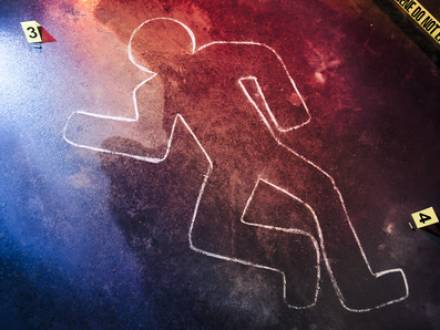Recent Blog Posts
From Assault to Homicide: Upgrading Charges if the Victim Dies
 A Madison, WI man pleaded guilty to second-degree reckless injury in 2016 for shooting a man in 2015. The victim was left paralyzed, and the defendant was sentenced to eight years in prison. In 2021, the victim died, and new charges of first-degree reckless homicide were filed against the defendant, who accepted a plea deal of second-degree reckless homicide (Section 940.06) on July 14, 2025, and was sentenced to another eight years in prison.
A Madison, WI man pleaded guilty to second-degree reckless injury in 2016 for shooting a man in 2015. The victim was left paralyzed, and the defendant was sentenced to eight years in prison. In 2021, the victim died, and new charges of first-degree reckless homicide were filed against the defendant, who accepted a plea deal of second-degree reckless homicide (Section 940.06) on July 14, 2025, and was sentenced to another eight years in prison.
If you have been sentenced to prison for a charge similar to assault, you may wonder what would happen if the alleged victim dies. Could you then face homicide charges? In Wisconsin, any charge similar to assault, including battery, substantial bodily harm, or reckless injury, could seem like the end of the matter once you are sentenced. But what happens if the alleged victim’s condition worsens, and months – or even years – later, he or she dies from the injuries?
Wisconsin Gun Laws: What Can Get You Arrested?
 A report from October 2024 showed that firearm deaths rose consistently in Wisconsin every year since 2018. In 2022 alone, 830 people died from guns in homicides and suicides, while that number was 598 in 2018. The 2022 number was higher than the number of deaths from auto accidents in the state.
A report from October 2024 showed that firearm deaths rose consistently in Wisconsin every year since 2018. In 2022 alone, 830 people died from guns in homicides and suicides, while that number was 598 in 2018. The 2022 number was higher than the number of deaths from auto accidents in the state.
Although the talking point from the gun lobby says that more guns make people safer, study after study continues to show that the opposite is true. The more firearms our society has, the higher the rate of gun violence. This report does not consider the hundreds or thousands of gun violence injuries that do not result in death.
Despite the fact that policies like universal background checks and red flag laws are widely supported by Wisconsin residents, the Legislature has consistently gone the other direction. Still, violating firearm laws in the state can lead to serious criminal charges, including felony charges. From carrying a concealed weapon without a permit to possessing a gun as a felon (and everything in between), it is important to know the laws and protect yourself from criminal liability.
Fruit of the Poisonous Tree: What It Means in a Criminal Case
 In the state of Wisconsin, not all evidence is created equal regarding criminal defense cases. In fact, when evidence is obtained illegally, there is a legal doctrine known as "fruit of the poisonous tree." This means that if law enforcement gathers evidence through illegal means or violates the defendant's constitutional rights during the evidence-gathering process, that evidence may be suppressed or excluded.
In the state of Wisconsin, not all evidence is created equal regarding criminal defense cases. In fact, when evidence is obtained illegally, there is a legal doctrine known as "fruit of the poisonous tree." This means that if law enforcement gathers evidence through illegal means or violates the defendant's constitutional rights during the evidence-gathering process, that evidence may be suppressed or excluded.
For example, suppose the police make an unlawful traffic stop and discover drugs. Since they had no probable cause (968.12 (3) 2(c)) to pull the driver over, the drugs may not be allowed in as evidence if the defense attorney can prove they are fruit of the poisonous tree, or the result of an illegal search.
If the drugs are not allowed in, there is no crime, and the charges must be dropped. If you believe there were serious errors or illegalities in your arrest, discuss the issue with a highly experienced Walworth County, WI criminal defense attorney. Understanding how the principle of fruit of the poisonous tree works can mean the difference between a conviction and a successful defense.
The High Stakes of a Murder Plea Deal in Wisconsin
 When you are facing a homicide charge in Wisconsin, you may be under overwhelming pressure to accept a plea deal. And, in some cases, that plea deal may be all that is standing between you and life in prison with no parole and less time in prison with the possibility of parole.
When you are facing a homicide charge in Wisconsin, you may be under overwhelming pressure to accept a plea deal. And, in some cases, that plea deal may be all that is standing between you and life in prison with no parole and less time in prison with the possibility of parole.
The stakes of accepting a murder plea deal could not be higher. Those stakes include your freedom and your future. The prosecutor may offer a reduced sentence in exchange for a guilty plea, but accepting such a deal is never a simple decision.
A plea deal can help you avoid the uncertainty of a trial and the potential for harsher punishment, but it also means giving up your right to defend yourself in court. The decision to take a plea deal requires experienced legal guidance from a Dodge County, WI criminal defense lawyer.
Endangering the Safety of Others with a Dangerous Weapon in WI
 Two people were recently arrested after shots were fired during a parking lot argument in Johnson Creek. The Jefferson County Sheriff’s Office was called to the location early Monday morning, June 16th. Witnesses say that one person fired shots at another during a verbal argument, but did not cause any injuries. The suspect left the scene but was apprehended by the Sheriff’s Office.
Two people were recently arrested after shots were fired during a parking lot argument in Johnson Creek. The Jefferson County Sheriff’s Office was called to the location early Monday morning, June 16th. Witnesses say that one person fired shots at another during a verbal argument, but did not cause any injuries. The suspect left the scene but was apprehended by the Sheriff’s Office.
While it is unclear what the suspect will be charged with, it is essential to note that Endangering Safety by Use of a Dangerous Weapon in the state is a serious crime, carrying severe penalties. This offense can be found in Chapter 941, Crimes Against Public Health and Safety, 941.20. If you have been charged with this offense or another weapons charge, you need legal assistance from an experienced Ozaukee County, WI criminal defense attorney.
What is the Crime of Sextortion in Wisconsin?
 A Wisconsin mother is speaking out following the death of her 15-year-old son by suicide as a result of an online scam known as "sextortion." Scammers target people, often young boys or girls, coercing them into sending sexually explicit images. Once the photos or videos are sent, the scammer threatens the person, saying they will release the images unless the person pays them money or live streams acts of animal cruelty, self-harm, suicide, or sexual explicitness.
A Wisconsin mother is speaking out following the death of her 15-year-old son by suicide as a result of an online scam known as "sextortion." Scammers target people, often young boys or girls, coercing them into sending sexually explicit images. Once the photos or videos are sent, the scammer threatens the person, saying they will release the images unless the person pays them money or live streams acts of animal cruelty, self-harm, suicide, or sexual explicitness.
The FBI has warned against these scams, even naming a group called 764, which operates both in the U.S. and globally. The threat of sending images to parents, friends, spouses, classmates, or even co-workers pressures people into paying the money or doing things they would not typically do. Like most states, sextortion is not yet a specific crime in Wisconsin. However, the Wisconsin legislature is currently working on "Bradyn’s Bill" to address the crime.
What is Required to Prove Criminal Responsibility for Murder?
 Wisconsin residents may remember a double murder that occurred in 2021, beginning when a 23-year-old reported his parents missing from their Windsor home. After a Cottage Grove woman told investigators that she witnessed the son backing his car up near a wooded area soon after the disappearance, the area was searched. The missing father’s torso, along with scissors, a saw blade, and bolt cutters, was found in the woods, with the mother’s remains found shortly after.
Wisconsin residents may remember a double murder that occurred in 2021, beginning when a 23-year-old reported his parents missing from their Windsor home. After a Cottage Grove woman told investigators that she witnessed the son backing his car up near a wooded area soon after the disappearance, the area was searched. The missing father’s torso, along with scissors, a saw blade, and bolt cutters, was found in the woods, with the mother’s remains found shortly after.
In his 2022 trial, the son faced two counts of first-degree intentional homicide. The prosecution alleged that the parents had been killed to keep them from finding out that their son had dropped out of college. While the defense claimed that the State only proved the son was a liar, not a killer, the jury disagreed, and the son was given a life sentence. A conviction of first-degree intentional homicide in Wisconsin requires proof of two elements: that the defendant caused the death of the victim or victims and that the defendant acted with intent to kill the victim.
Could You Go to Jail for Reckless Driving?
 Every state has its own driving rules, with the goal of keeping roadways safe for all drivers. When a person breaks these rules, they could face penalties, some of which are serious. While reckless driving is never a minor issue, sometimes it can be more serious than others.
Every state has its own driving rules, with the goal of keeping roadways safe for all drivers. When a person breaks these rules, they could face penalties, some of which are serious. While reckless driving is never a minor issue, sometimes it can be more serious than others.
In the state of Wisconsin, reckless driving that results in great bodily harm to another person can be charged as a Class I felony. Felony convictions can have immediate effects, such as jail time and steep fines, but they can also have long-term consequences. A person with a felony conviction can find it difficult to obtain employment, a government student loan for college, or a professional license.
Felony convictions can prevent a person from owning a firearm and even voting in some states. If you are facing reckless driving charges, you should not view the charges as nothing more than a simple traffic violation. Speak to an experienced Milwaukee County, WI traffic law attorney as quickly as possible.
Madison OWI Suspect Bites Officer During Arrest
 Madison police officers were notified of a driver "slumped over" in his car in traffic around 10:00 p.m. Although the car was initially seen near West Dayton and North Park Streets, it was later found on Brown Quail Court in a parking lot.
Madison police officers were notified of a driver "slumped over" in his car in traffic around 10:00 p.m. Although the car was initially seen near West Dayton and North Park Streets, it was later found on Brown Quail Court in a parking lot.
Officers stated the subject showed signs of intoxication, but during the arrest, the 26-year-old man bit one of the officers, causing soft tissue damage. The man was arrested and charged with a second offense OWI, resisting arrest, battery to law enforcement, and a variety of traffic citations.
Although DUI is used as a general reference to impaired driving, in Wisconsin, the offense is generally called Operating While Intoxicated (OWI). While OWI, particularly a second, third, or subsequent offense, comes with serious penalties, in this case, the penalties will be significantly compounded because of the charge of battery to law enforcement and resisting arrest.
How Serious Are Charges of Battery Against a Police Officer?
 Recently, law enforcement responded to a disturbance in Madison, WI, at 3:15 a.m. When the police arrived on the scene, they found a male standing over a female, who was on the ground. During the course of questioning both people, the female slapped a police officer, resulting in her arrest. She was charged with battery against law enforcement. There are three types of criminal battery in the state of Wisconsin.
Recently, law enforcement responded to a disturbance in Madison, WI, at 3:15 a.m. When the police arrived on the scene, they found a male standing over a female, who was on the ground. During the course of questioning both people, the female slapped a police officer, resulting in her arrest. She was charged with battery against law enforcement. There are three types of criminal battery in the state of Wisconsin.
The least serious type is charged as a Class A misdemeanor, resulting in up to nine months in jail and a maximum fine of $10,000 if the defendant is found guilty. If you have been charged with battery in the state of Wisconsin, you should understand that the penalties can be extremely harsh, with long-term consequences. It is beneficial for your future to contact a Walworth County, WI criminal defense lawyer.














 262-303-4916
262-303-4916 262-303-4079
262-303-4079






